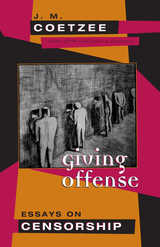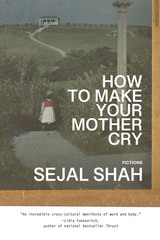
Nadine Gordimer has written of J. M. Coetzee that his ‘vision goes to the nerve-centre of being. What he finds there is more than most people will ever know about themselves, and he conveys it with a brilliant writer’s mastery of tension and elegance.’ Doubling the Point takes us to the center of that vision. These essays and interviews, documenting Coetzee’s longtime engagement with his own culture, and with modern culture in general, constitute a literary autobiography of striking intellectual, moral, and political force.
Centrally concerned with the form and content of fiction. Doubling the Point provides rigorous insight into the significance of certain writers (particularly modernists such as Kafka, Musil, and Beckett), the value of intellectual movements (from structuralism and structural linguistics on through deconstruction), and the issues of political involvement and responsibility—not only for Coetzee’s own work, but for fiction writing in general. In interviews prefacing each section of the book, Coetzee reflects on the essays to follow and relates them to his life and work. In these interviews editor David Attwell, remarkably well attuned to his subject, prompts from Coetzee answers of extraordinary depth and interest.
The result is the story of a fiction writer’s intellectual development, and of an intellectual’s literary development. It is the story of how one writer has moved through the scholarly and political trends of the last thirty years, carefully assessing their applications and limitations, and through this experience forged for himself a unique and powerful literary voice informed in equal parts by life and learning.

J. M. Coetzee presents a coherent, unorthodox analysis of censorship from the perspective of one who has lived and worked under its shadow. The essays collected here attempt to understand the passion that plays itself out in acts of silencing and censoring. He argues that a destructive dynamic of belligerence and escalation tends to overtake the rivals in any field ruled by censorship.
From Osip Mandelstam commanded to compose an ode in praise of Stalin, to Breyten Breytenbach writing poems under and for the eyes of his prison guards, to Aleksander Solzhenitsyn engaging in a trial of wits with the organs of the Soviet state, Giving Offense focuses on the ways authors have historically responded to censorship. It also analyzes the arguments of Catharine MacKinnon for the suppression of pornography and traces the operations of the old South African censorship system.
"The most impressive feature of Coetzee's essays, besides his ear for language, is his coolheadedness. He can dissect repugnant notions and analyze volatile emotions with enviable poise."—Kenneth Baker, San Francisco Chronicle Book Review
"Those looking for simple, ringing denunciations of censorship's evils will be disappointed. Coetzee explicitly rejects such noble tritenesses. Instead . . . he pursues censorship's deeper, more fickle meanings and unmeanings."—Kirkus Reviews
"These erudite essays form a powerful, bracing criticism of censorship in its many guises."—Publishers Weekly
"Giving Offense gets its incisive message across clearly, even when Coetzee is dealing with such murky theorists as Bakhtin, Lacan, Foucault, and René; Girard. Coetzee has a light, wry sense of humor."—Bill Marx, Hungry Mind Review
"An extraordinary collection of essays."—Martha Bayles, New York Times Book Review
"A disturbing and illuminating moral expedition."—Richard Eder, Los Angeles Times Book Review
READERS
Browse our collection.
PUBLISHERS
See BiblioVault's publisher services.
STUDENT SERVICES
Files for college accessibility offices.
UChicago Accessibility Resources
home | accessibility | search | about | contact us
BiblioVault ® 2001 - 2024
The University of Chicago Press









